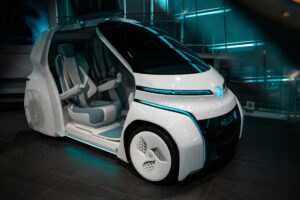In a world where technology is constantly evolving, one unexpected development is taking the business world by storm: the rise of virtual influencers. These computer-generated personalities are taking social media by storm, gaining millions of followers and securing lucrative brand deals without ever attending a photoshoot or press event.
With their flawless appearance and carefully curated personalities, virtual influencers are able to engage with audiences in ways that traditional influencers cannot. In fact, according to a recent study by Insider Intelligence, virtual influencers have an engagement rate that is 2.5 times higher than that of human influencers.
But how do brands feel about working with virtual influencers? According to Sarah Brown, a marketing executive at a leading beauty brand, virtual influencers offer a level of control and consistency that is hard to come by with human influencers. “With virtual influencers, we can ensure that our brand values are always in alignment, and we don’t have to worry about any off-brand behavior tarnishing our image,” she explains.
As virtual influencers continue to gain popularity, it begs the question: what does this mean for the future of influencer marketing? Will human influencers be replaced by their digital counterparts, or will there always be a place for real-life personalities in the industry? Only time will tell, but one thing is for certain: the rise of virtual influencers is a fascinating development that is reshaping the way businesses approach influencer marketing.



